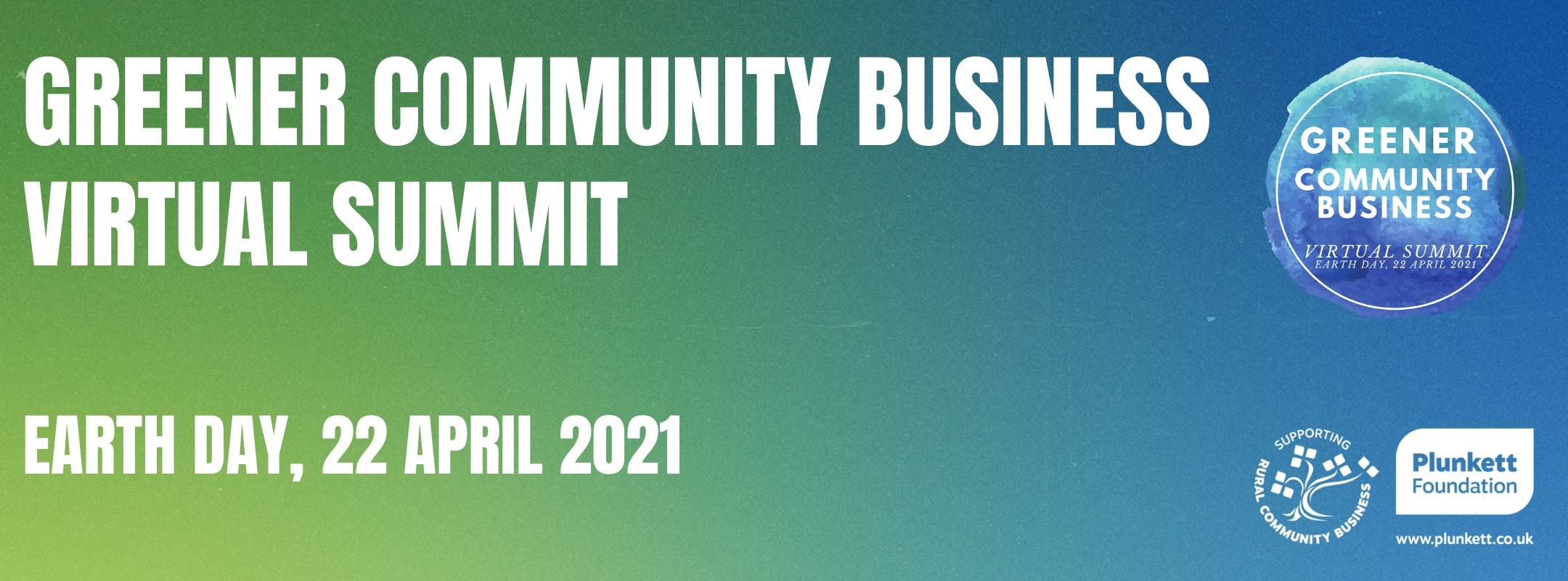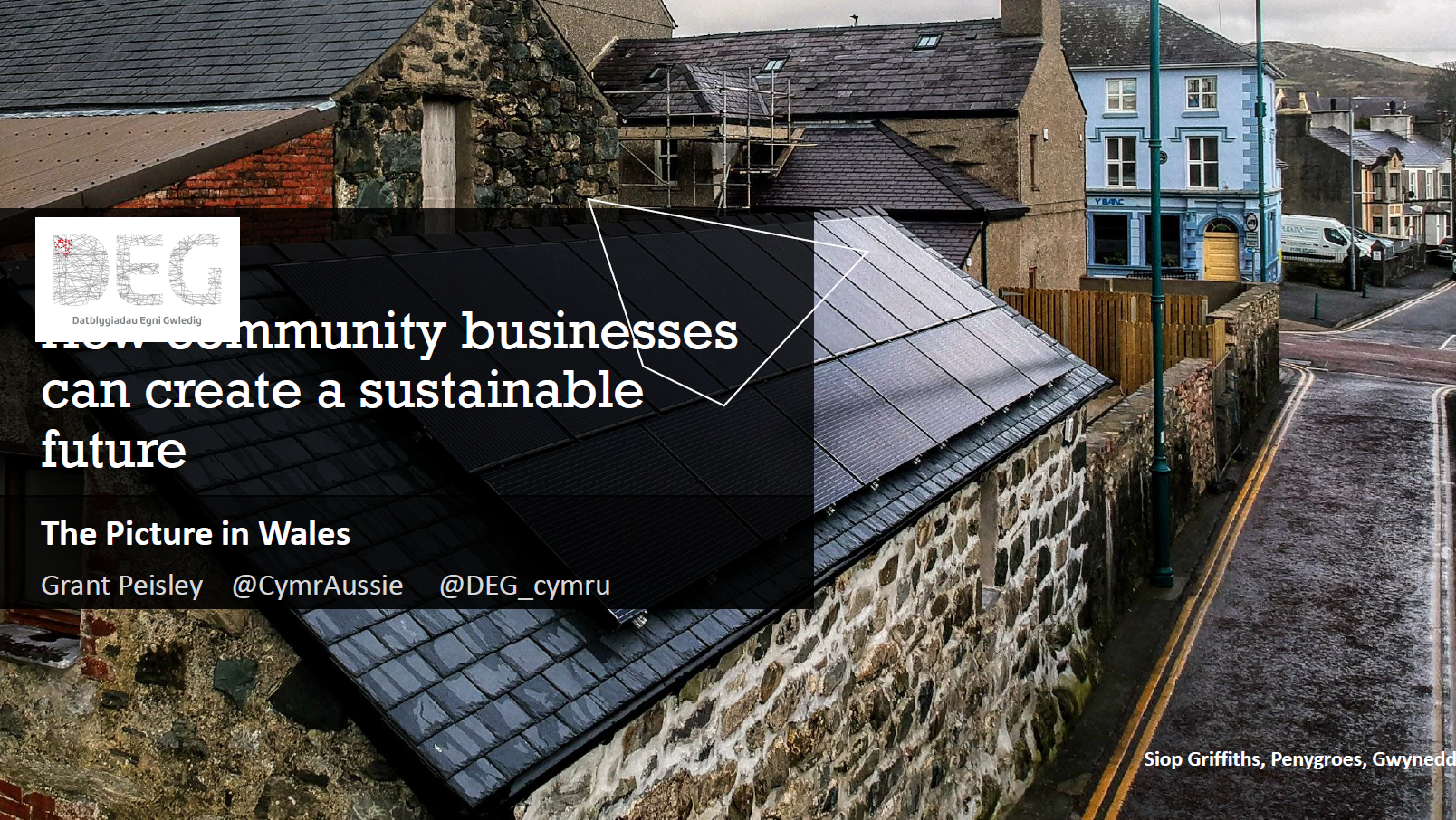
line space
Last year, we launched our Rural Vision, which identified five central opportunities to achieve a stronger, more resilient future for rural communities across the UK.
Harnessing positive environmental impact through community business was one of those five opportunities, and on 22 April 2021, to coincide with Earth Day, we invited community businesses across the UK to join the discussion about how as a sector, we can promote greener communities; either by greening up our own organisations or facilitating local communities to live more environmentally-friendly lifestyles.
Our Greener Community Business Virtual Summit featured a programme of short, practical sessions designed to introduce you to the concept of greening-up your community business, and showcase some inspiring community-based environmental initiatives from organisations such as Hook Norton Low Carbon and Agroecology Land Trust’s Coed Talyalan project. Find out more about each session below.
The transport revolution: how community businesses can get involved with the electric vehicle movement
Part 1: How community businesses can get involved with the electric vehicle movement, with Charge My Street
Daniel Heery and Ady Powell of Community Benefit Society, Charge My Street, introduce their vision for every home to be within a 5-minute walk of an electric vehicle chargepoint, and how they work with communities to make this happen. Drawing on a number of real-life case studies, we are introduced to the benefits of hosting a community chargepoint, the practicalities of how to make it happen and the key things to consider. If you’re interested in setting up a community chargepoint, please contact membership@plunkett.co.uk
Part 2: In conversation with… Hook Norton Low Carbon
Plunkett Foundation Project Manager, Aimee Evans, also hosted a conversation with Jessica D’Souza from Hook Norton Low Carbon. The village of Hook Norton, with a population of just over 2,000, has had a car club since 2011. Membership involves applying to join Hook Norton Low Carbon for a fee of £5 per month as well as a hire fee. Recently, the fleet has been changed to electric cars with several charging points introduced around the village. The group have chosen a variety of electric car models, including the larger Outlander vehicle to encourage family hire (they also offer car seats) alongside the commuters and second-car users. The cars themselves are branded, hire is promoted on social media, and they are also used for other activities such as a collect and deliver service from a refill shop in the town of Banbury where residents of the village can put an order in and the orders will be collected by electric car and distributed around the village on delivery day. As well as cars, there are e-bikes for hire which involve joining Hook Norton Low Carbon as a member for £1 and then hire fees on top of this. The car club and e-bikes are just one of many initiatives that Hook Norton Low Carbon have introduced to support and promote sustainable living.
The low carbon revolution: how community businesses can be more sustainable
Part 1: How community businesses can create a sustainable future
Plunkett Foundation Adviser, Grant Peisley, introduced a variety of low-carbon initiatives in Wales and discussed ways in which community businesses can create a more sustainable future. Grant set the scene by talking about current Welsh policy, such as the Well-being and Future Generations Act, which works to promote sustainable development in order to improve well-being and reach a shared vision. Grant discussed low-carbon transport schemes such as TrydaNi Charge Place Wales who aim to be the “go-to” electric car charging solution for Wales, and other examples included electric coastal buses supporting local infrastructure and the tourist industry in a greener way. Grant introduced the carbon impact of different fuels, and how various projects, such as Siop Griffiths, are using heat pumps as a low-carbon heating alternatives. Another green initiative Grant introduced was local procurements, with projects like Cadwyn Ogwen creating and supporting a partnership of local businesses working together to sell and deliver their products locally. Finally, Grant introduced a wealth of community owned renewable energy projects, and the opportunities and challenges that going down this route raises. Take a look at the presentation to see more fantastic Welsh projects!

Part 2: In conversation with… Coed Talyalan
Plunkett Foundation Project Manager, Aimee Evans, hosted a conversation with James Scrivens of Agreocology Land Trust, showcasing how this pioneering rural community enterprise is promoting a sustainable future. At Coed Talyalan, the location of the first ALT action research project, they are creating a low impact development for shared equity, self build, co-housing that supports innovative approaches to land management. Take a look at their resources on their website to find out more about their vision for a co-sufficient community farm managed according to the principles of food sovereignty and agreocology, and how they’re enabling aspiring landworkers to access training on topics such as mushroom cultivation, renewable energy and natural building.
The zero waste revolution: stocking refill products and reducing packaging waste
Plunkett Foundation’s Community Business Manager, Alison Macklin, discusses key things to think about in regards to stocking refill products and reducing packaging waste. Alison talks about the pros and cons of buying in bulk, what kind of products are suitable to sell as refill, legalities and requirements, and the practical considerations of making the change to selling loose products.
The food revolution: reducing food waste and setting up a community fridge
Tessa Tricks from environmental charity Hubbub introduces ways that your community can reduce food waste, and discusses the concept of a community fridge. Hubbub is a charity that inspires ways of living that are good for the environment, and aims to make sustainable diets successful and sustainable for all through a variety of food campaigns. Recent campaigns include Food Savvy, a collective food waste reduction project in Suffolk and Norfolk, and yearly pumpkin rescues of the leftover Halloween pumpkins. Community fridges also work as a way to reduce food waste, as well as acting as a social space where anyone in the community can give or take surplus food but also share recipes etc. Hubbub have set up the Community Fridge Network to provide a framework for people to set up their own community fridge with a comprehensive guide, design assets, health and safety templates and grant funding available to cover start-up and running costs.
If you’re interested in setting up a community fridge, please contact communityfridge@hubbub.org.uk and mention Plunkett Foundation.





